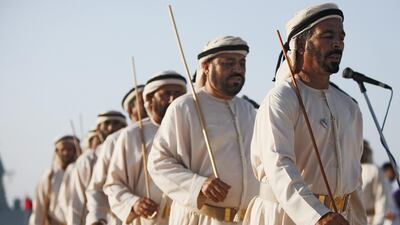Anyone who was in Dubai over the weekend or viewed the celebrations for Expo2020 on television would have noticed something unusual. Those celebrating the city’s win were not all Emiratis; indeed most, as befits the demographics of the country, were expatriates.
At first glance, seen in a global context, that looks unusual. For expatriates in the United States, which celebrated its Thanksgiving day last week, such slices of Americana are to be enjoyed as spectators, not participants. The many who crowded into the UK last year for the Queen’s Diamond Jubilee were similarly there for the spectacle – they were watching the English wave British flags to celebrate (the republicans noted snarkily) a German queen. The same applies to the many national day celebrations that tourists find themselves part of on their travels.
Why then, an observer might ask, were non-nationals so keen to celebrate Dubai’s achievement? And why, wandering along Abu Dhabi’s Corniche this weekend, were so many of those sporting flags non-nationals?
The answer says something interesting about the UAE; it says something about the cohesiveness of a society that, by all external factors, ought to be anything but. The UAE has one of the largest expatriate populations in the world, and yet somehow millions of them were celebrating the success of the country. Many of them contributed to bringing about that success. As the country celebrates its National Day, it is a testament to the nation and its nationals that it has managed to make so many feel at home.
In particular, the UAE holds a special attraction to other Arabs. Earlier this year, a survey by a leading public relations agency found that young people in the Arab world would prefer to live in the UAE than in any other country. That wasn’t a preference for any other Arab country – that was a preference for any other country in the world, including countries that are traditionally seen as the most attractive, like France (number 2) and the United States (number 3).
When that survey came out, I discussed it with Arab expatriates in Dubai who saw the root of it as a craving for novelty and excitement. The majority of all Arabs now living are under 30. With the Arab Spring still playing out, Dubai, especially, is the safest and most cosmopolitan city in the region. No other city in the Arabian Peninsula (and for a considerable way beyond) is as diverse or as dynamic. That energy attracts young people especially: every evening in the city, young people from across Europe, the Arab world, South Asia and further afield gather together. That is a big draw.
Moreover, the city as well as its capital neighbour to the south attracts two categories of people that I find especially fascinating. It attracts western Arabs (those Arabs who were raised in the West), who see it as the easiest place in the region to live between the two cultures. And it attracts those from the developed world – not merely the West – who, although they may have no connection to the country or the region, see it as the easiest place to live what I call the “urban dream”. This is the life of high-rise apartments, glamorous restaurants and beautiful people that is repeatedly permeated through popular culture as the most desirable way for those in their 20s and 30s to live. Ironically, it is almost impossible, given the cost of living, to live like that in New York or London.
But I think the reason for the UAE’s attractiveness goes deeper than lifestyle, especially for Arabs. It isn’t merely about the glitter of Dubai or Abu Dhabi, as a stroll through other cities in the country shows. Everywhere, there are thousands of Arabs (and, of course, other nationalities), living, working, raising families and building businesses.
The reason that so many Arabs want to live in the UAE is the same reason so many want to live in the West. The opportunities for advancement, the standard of living, the rule of law and the security of the country far exceed most of the Arab world, and indeed many countries beyond.
The Arab world has been, for some time, in a parlous state. Corruption, poor governance, stagnant economies, infrastructure problems – these are all problems that nearly every Arab country has faced in the past three decades. For young people who grew up in these countries, it is no wonder that the UAE appears as a beacon, a place where they can come and practice their professions in peace. That it is also an Arab country, with all the familiarity of language and culture that implies, only adds to the attraction.
And that’s what has happened over the past 42 years: Arabs, especially those from neighbouring countries and those affected by instability, have come to the UAE. Palestinians, Lebanese, Egyptians, Yemenis, Moroccans and Iraqis have come, bringing their talents and their energy. As the Arab Spring has rocked the region, they have increasingly also brought their money and their families.
This is what an Arab colleague meant when he described the UAE as “hilm al-Arab”, the dream of the Arabs, a place to be proud of and a place to emulate. Perhaps that’s the greatest compliment the Arab world can pay the UAE on this national day: in a region that has so many of the world’s oldest and finest civilisations, it is one of the newest that now stands as a model for the rest.
falyafai@thenational.ae
On Twitter: @FaisalAlYafai


